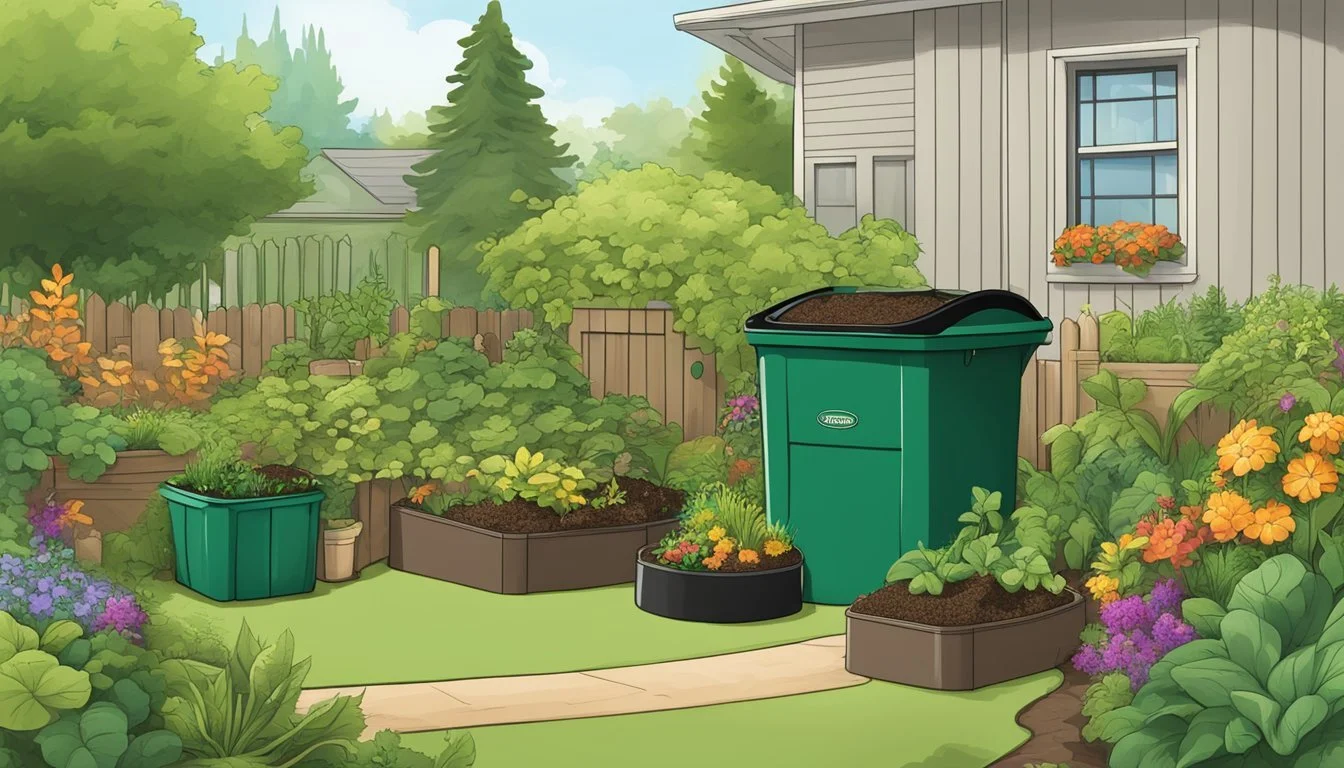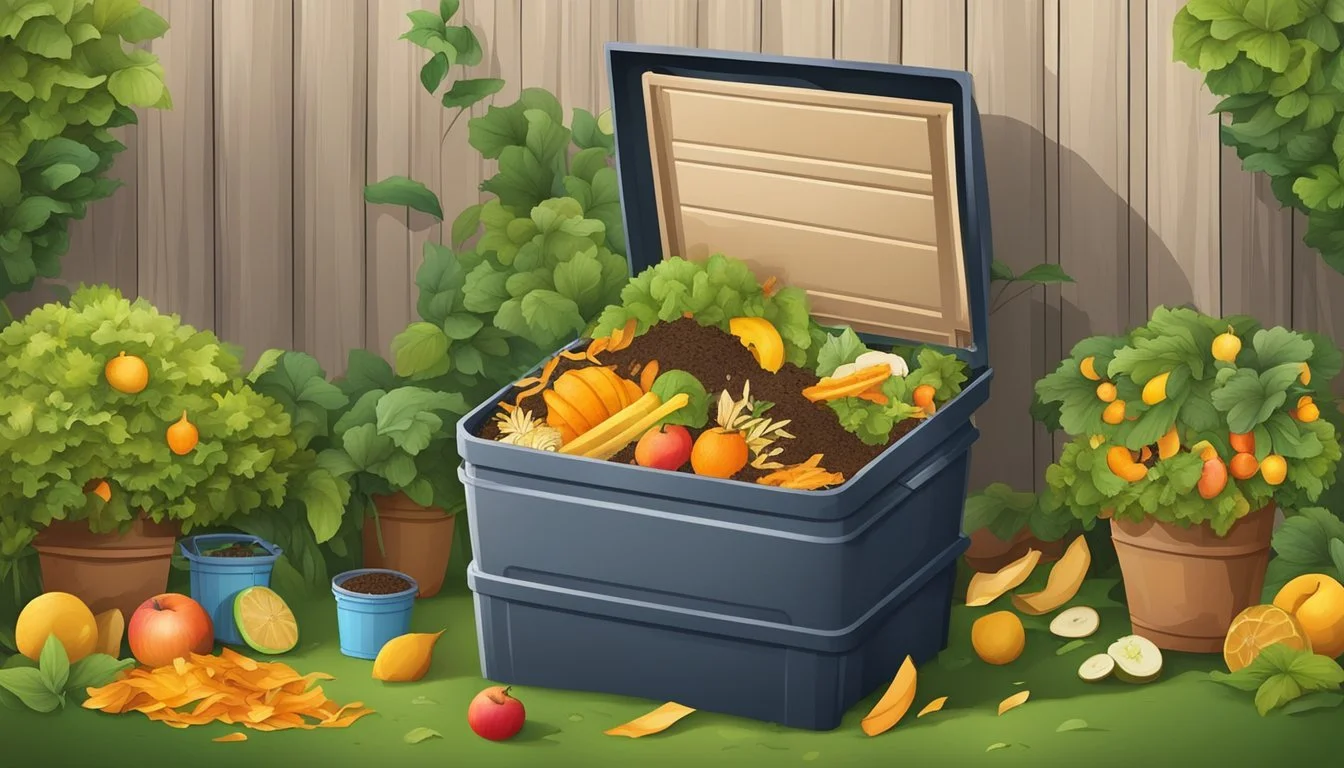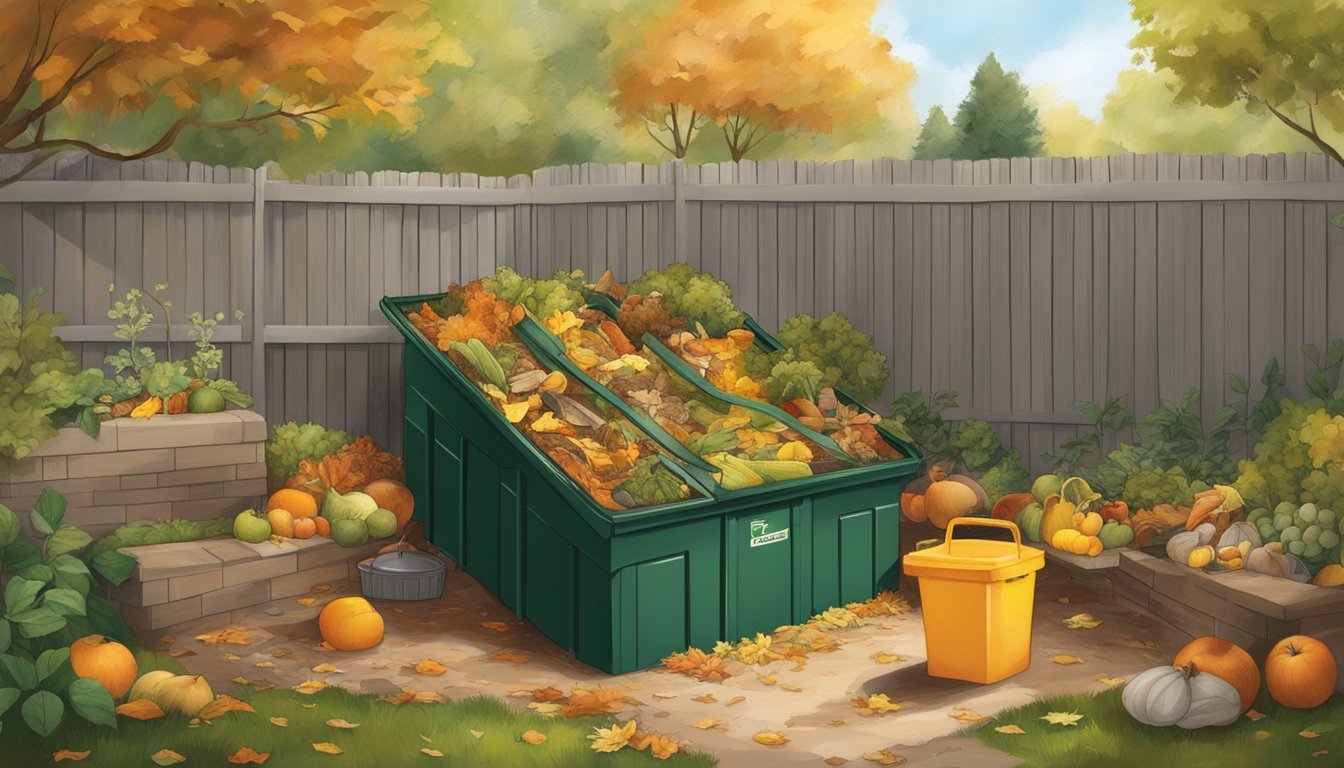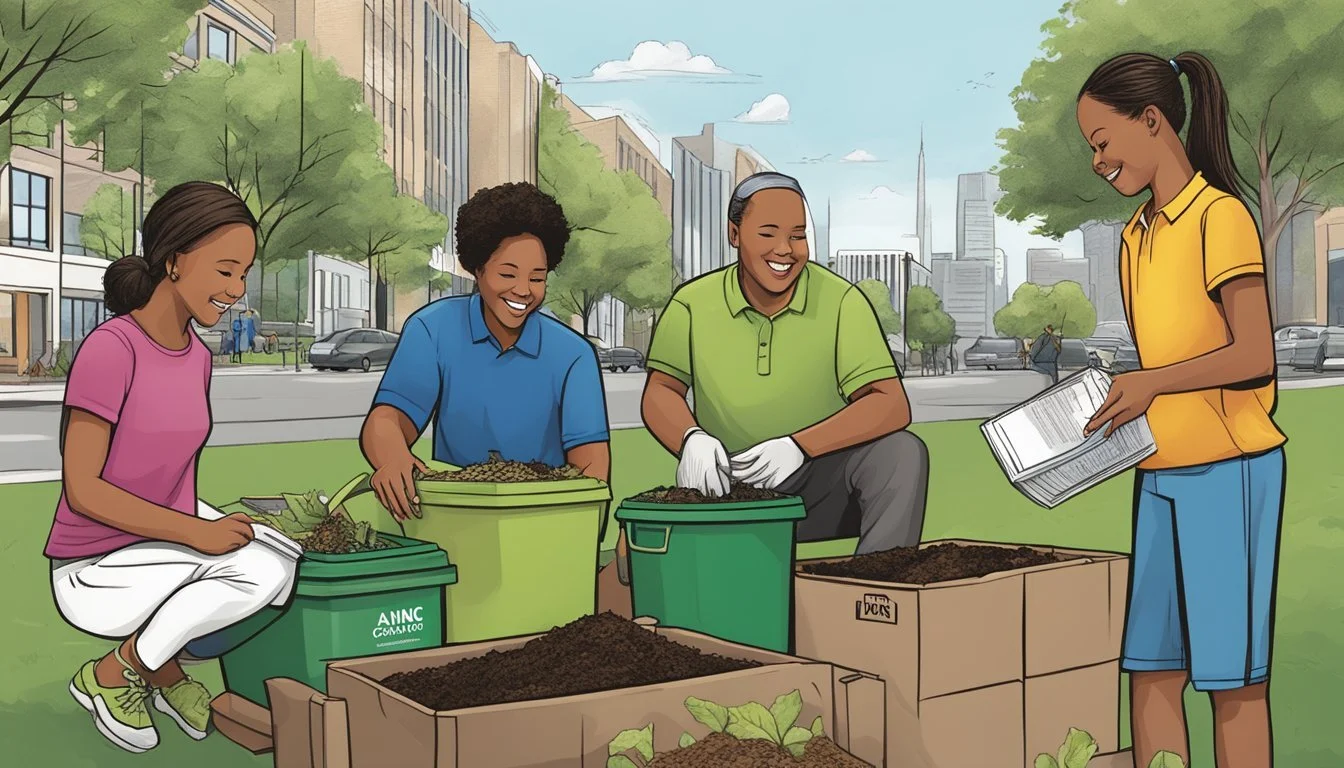Guide to Composting in Lansing, MI
Essential Tips for Local Residents
Composting in Lansing, Michigan, represents an effective way for residents to enhance the environment and improve their garden soil. The natural process of composting turns yard waste and kitchen scraps into a nutrient-rich substance that benefits plant growth and soil health. Not only does it reduce the amount of waste entering landfills, but it also recycles organic resources to create a useful product for gardening and landscaping.
In Lansing, local government initiatives provide residents with resources and guidelines to begin and maintain effective composting practices. With the State of Michigan's first composting law prohibiting yard wastes from landfill disposal since the mid-1990s, citizens of Lansing are encouraged to adopt composting as a daily routine in waste management. This transformation aligns with broader environmental goals by reducing greenhouse gas emissions and conserving landfill space.
Compost serves as an excellent amendment to local soils, which are crucial for Michigan's diversified plant life. It adds essential nutrients back into the soil, promoting healthier plant growth and a more vibrant ecosystem. The City of Lansing facilitates composting through information dissemination and support services, making it accessible and practical for individuals to contribute to a greener community.
Benefits of Composting
Composting in Lansing, MI, offers considerable gains for soil quality, environmental health, and the reduction of waste. This natural process turns organic materials into a valuable soil amendment.
Soil Improvement
Composting creates a robust soil conditioner, enriching gardens and landscapes across Lansing. The resulting compost is teeming with essential nutrients that plants require to thrive. This organic material not only improves soil structure but also enhances its ability to retain water and nutrients.
Environmental Impact
The environmental benefits of composting are significant. Composting curbs the emission of methane and carbon dioxide, potent greenhouse gases released when organic waste decomposes anaerobically in landfills. It embodies effective recycling of kitchen and yard waste, transforming it into a beneficial product while conserving resources and energy.
Waste Reduction
By diverting organic waste from landfills, composting greatly reduces the overall volume of waste. This practice extends landfill lifespans and diminishes the economic and environmental costs associated with waste management. Moreover, composting minimizes the amount of organic material that would otherwise contribute to landfill-related pollution.
Choosing the Right Location
When setting up a compost in Lansing, the selection of the right spot in one's yard is crucial for optimal decomposition and ease of access. The location should accommodate seasonal changes in Michigan and should also facilitate the natural breakdown process of organic materials such as leaves, grass clippings, and garden waste.
Assessing Your Yard
In determining the perfect spot for a compost pile, one should consider both sunlight exposure and drainage. A location that receives partial sunlight can help maintain a consistent soil temperature, avoiding extremes that could inhibit microbial activity. Furthermore, good drainage is essential to prevent waterlogging, which can lead to anaerobic conditions and odor issues. Here are key considerations:
Sunshine: Aim for a balance of shade and sun.
Drainage: Ensure the area doesn't collect standing water.
The composting area should be easily accessible for adding materials and retrieving the finished compost, yet not in direct view to maintain the aesthetic appeal of the yard.
Understanding Soil Temperature
Soil temperature plays a pivotal role in the composting process. Warmth is necessary to encourage the microbial activity that breaks down yard waste into nutrient-rich compost. However, soil that is too hot can kill beneficial microorganisms and halt decomposition.
Summer: Soil should be warm, but not hot, which may necessitate some shading.
Winter: Soil temperature should be maintained to prevent freezing, possible with the insulating effects of surrounding earth or a compost bin.
Selecting a spot that shields the compost pile from Lansing's harshest winter conditions, while also taking advantage of passive solar heat in the cooler months, can promote year-round composting activity. A balance in soil temperature is key to a successful composting operation.
Setting Up Your Compost System
A successful compost system in Lansing, MI, starts with selecting the right type of bin, understanding how to construct a compost pile, and possibly incorporating worm composting techniques for enhanced decomposition.
Types of Composting Bins
There are various bins suitable for composting that cater to different needs. A tumbler bin is a convenient option, especially for those with limited space—it's enclosed and can be easily rotated to mix compost materials. Stationary bins are common and can be made of wire, wood, or plastic. These hold more material and are good for larger gardens. When choosing bins, consider the volume of yard waste you'll be composting. For instance, a tumbler might be sufficient for light yard work, while extensive landscaping might call for a larger stationary bin.
Building Your Own Compost Pile
Constructing a compost pile involves layering carbon-rich materials like wood chips and nitrogen-rich materials such as food scraps and yard waste. These materials should be layered in a ratio that optimally supports decomposition. A basic pile can start with a layer of coarse material, like twigs, to allow for air circulation. After this, alternating layers of green (nitrogen-rich) and brown (carbon-rich) materials should follow. The pile should be kept moist but not soggy and should be turned regularly to introduce oxygen and aid in the decomposition process.
Using Worm Composting Techniques
Worm composting, or vermicomposting, is effective for small-scale composting and can even be done indoors. This involves the use of earthworms to break down organic material. A simple worm compost system can be set up in a bin with drainage holes, filled with moist bedding like shredded newspaper, and kitchen scraps for the worms to feed on. Red wiggler worms are a popular choice for these systems. It's critical to maintain the right conditions—moisture, temperature, and pH—to ensure the worms thrive and efficiently convert waste into compost.
What to Compost
In Lansing, MI, effective composting relies on a balanced mix of "Green" and "Brown" materials, while certain products must be avoided to maintain a healthy composting process.
Green Materials
Green materials provide nitrogen, an essential component for the composting process. These materials are usually moist and include:
Vegetable scraps: Such as carrot peels, lettuce, and other vegetable leftovers.
Food scraps: Fruit peels, cores, and other non-meat food waste.
Grass clippings: Freshly cut grass adds nitrogen.
Egg shells: Crushed egg shells contribute calcium, although they are considered more neutral.
Weeds: Only if they haven't gone to seed, as composting may not heat enough to kill seeds.
Brown Materials
Brown materials are carbon-rich and add the necessary bulk to allow air to flow through the compost. These consist of:
Yard waste: Including twigs, and branches broken into smaller pieces.
Leaves: Dry autumn leaves are an excellent brown material.
Twigs: Small twigs help to create air pockets within the compost pile.
Materials to Avoid
Not everything is suitable for a compost pile; some materials can create odors, attract pests, or even harm the composting process. It's best to avoid:
Meat and dairy: These can rot and attract pests.
Charcoal: Treated charcoal or ash can contain harmful chemicals.
Diseased plants: These can spread diseases through the compost.
By correctly categorizing materials into greens and browns and understanding what to exclude, composters can create nutrient-rich compost for their gardens while supporting Lansing's environmental sustainability efforts.
Maintaining Your Compost
Effective compost maintenance ensures accelerated decomposition while minimizing greenhouse gas emissions. A well-managed compost is a key component of sustainable gardening practices in Lansing.
Balancing Greens and Browns
The compost pile requires an optimal balance of green materials, like food scraps and grass clippings, which are rich in nitrogen, with brown materials, such as leaves and cardboard, which contain high carbon content. An ideal ratio is 3 parts browns to 1 part greens. This balance supports the thriving of decomposing bacteria and helps maintain the compost's pH level.
Aeration and Moisture
Regularly turning the compost with a fork or a shovel encourages aeration, which is critical for aerobic bacteria to break down organic materials efficiently. The compost should have the moisture content of a wrung-out sponge. If it's too dry, add water, and if too wet, mix in more browns to restore balance.
Monitoring the Composting Process
Observing the composting process is essential. One should monitor for a steady increase in internal temperature, which indicates active decomposing. The presence of insects, like earthworms, signifies a healthy environment. A sudden foul odor could indicate anaerobic conditions, signaling the need for more aeration or adjustment in the green and brown ratio to reduce greenhouse gas emissions.
Using Your Compost
Once compost has matured, it can be a vital asset to a gardener's toolkit, enhancing soil quality, promoting plant health, and conserving moisture. Utilizing compost effectively is key in various gardening applications around Lansing, MI.
As a Soil Amendment
Compost acts as an excellent soil amendment, enriching the soil with essential nutrients. Gardeners frequently incorporate compost into the soil to improve its structure, allowing for better root growth and water retention. By mixing compost into their gardens, they create organic soil that supports a diverse range of microbial life, essential for plant health.
As Natural Mulch
Applying compost as a natural mulch around plants not only suppresses weeds but also helps retain soil moisture. This helps to regulate soil temperature, thereby protecting plant roots during extreme weather conditions. Unlike other mulching materials, compost also breaks down over time, continually enriching the soil with nutrients.
As Fertilizer for Garden Beds
Many gardeners value compost for its ability to serve as a natural, effective fertilizer for garden beds. It releases nutrients slowly, which means there's less risk of nutrient run-off and root damage. Sprinkling compost around plants provides them with a steady supply of the food they need to grow strong and healthy.
Community and Government Support
Composting initiatives in Lansing, MI are supported by robust collaboration between community groups, educational institutions, and local government, providing residents with ample resources and facilities for effective waste management.
Michigan State Resources
Michigan State University extends support in the realm of composting by providing educational materials and programs aimed at enhancing composting practices. The State of Michigan also contributes through government websites that offer guides and FAQs, giving residents the tools needed to start and maintain successful composting systems.
Lansing Civic Programs
The city of Lansing's official website, hosted on CivicPlus, serves as a platform to educate residents about yard waste policies. It outlines the city's efforts in promoting composting, such as providing guidelines for yard waste disposal and various composting resources that are updated on a weekly basis.
Composting Facilities and Services
Lansing boasts a number of registered composting facilities that enable the community to dispose of organic refuse responsibly. Services range from large-scale composting for municipal waste to smaller operations that cater to individual households, all playing a vital role in reducing the environmental impact of waste.
Educational Resources and Further Research
For residents of Lansing looking to refine their composting practices, a wealth of educational resources and research findings are available. These materials can not only guide you in creating a more effective composting system but also provide insights into the broader context of waste management and sustainability.
Smart Gardening With Compost
Michigan State University offers valuable insights into smart gardening with compost, emphasizing the improvement of soil health. Their resources outline how compost serves as a fundamental ingredient for a flourishing garden by enhancing soil structure, providing nutrients, and aiding plant growth.
Composting Research at Cornell
For those looking to delve deeper into scientific studies on compost, the Cornell Waste Management Institute conducts extensive research on composting systems. Cornell's findings help individuals understand the complex ecosystem within a compost pile and its benefits, from nutrient cycling to methane emission reduction.
Waste Management and Compost Science
Understanding the science behind composting can lead to more sustainable waste management practices. The State of Michigan offers resources that explore how composting fits into broader waste management strategies, addressing issues such as reducing landfill use and managing organic waste.









